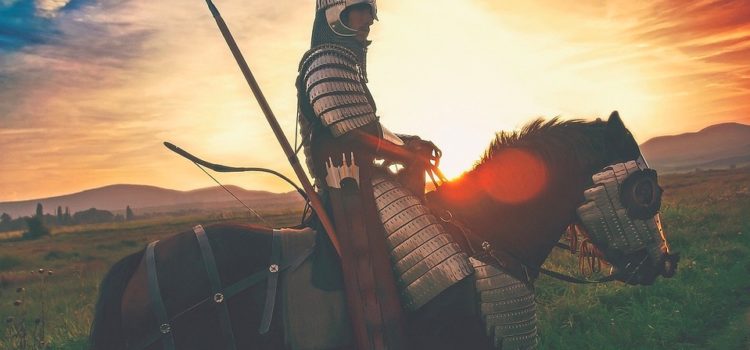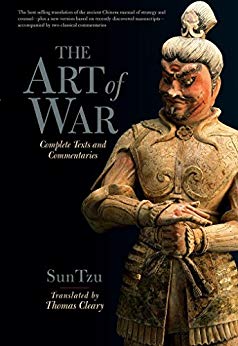

This article is an excerpt from the Shortform summary of "The Art of War" by Sun Tzu. Shortform has the world's best summaries of books you should be reading.
Like this article? Sign up for a free trial here .
In The Art of War, Sun Tzu says, “Victorious warriors win first.” What does Tzu mean by this? How can you win before you’ve begun?
We’ll cover what it takes to prepare so thoughtfully for battle that you win before the battle starts. Learn what it means for victorious warriors to win first.
A Thoughtful Plan of Attack
Victory is not just winning the battle. Killing is not the most important thing. Destabilizing your opponent is. If the battle is won but the opponent’s forces and country are obliterated, that is a lesser victory than if you are able to overcome them and force a surrender.
- If you can weaken your opponent’s resolve and force them to concede with their nation intact, your victory is more successful.
- The people will have greater respect for a battle won with integrity than one won through total destruction.
If you prepare your forces and show your prowess in the five traits, you will have won the psychological battle and may avoid a physical one. Victorious warriors win first. If the surrender comes before a battle is fought, all the better. Killing should only be a matter of necessity to survive, not the goal of the mission.
Strike Preemptively to Avoid Battle
How do victorious warriors win first? They strike early. The best time to strike an enemy is when they are involved in preparations. Strike before the enemy is fully mobilized, and they will be unable to fight back. This may prevent a battle. This strategy involves using intelligence, rather than brawn, to win.
If intelligent strategies don’t work, the next strategy is to win through intimidation.
- Form alliances to increase your strength to a point where fighting would be ill-advised for your opponent.
- Form alliances with the enemy’s allies to disrupt the enemy’s power.
Ultimate victory is when battle has been thwarted through intelligence or intimidation, there has been no destruction, no cities have been seized, and no blood has been shed.
Historical Example: Victorious Warriors Win First
During the Spring and Autumn Era (722 to 481 B.C.E.), when the Zhou dynasty was beginning to collapse, the state of Jin wanted to overtake the state of Qi, a much smaller state. The Jin sent an emissary to scope out the Qi. The emissary, feigning drunk aggression, insulted the Qi’s ruler and tried to force the Qi to disregard etiquette. When the Qi did not react to the insult and did not abide the aggressive demand, the emissary returned home and told the Jin leadership that the Qi were alert, cautious, and prepared. Therefore, they should not be attacked at this time. The Qi were able to thwart armed battle through intelligence.
Prepare Adequately
Victorious warriors win first with good preparation. If strategic, psychological warfare does not lead to an early solution, then you may be called upon to physically attack enemy forces. Attacks should be on enemy forces only, not territories, cities, or civilians.
Prepare ahead of time to avoid catastrophe in the field. Sun Tzu says six months are required to prepare the materials for an attack, including weapons and shelters, to avoid malfunctions and casualties. Don’t rush into battle without first ensuring that you’re adequately prepared. If you fight from a place of anger and don’t take time to prepare, you will be sending your troops to their deaths.
A strategic siege is one where your forces are still strong, your resources still ample, and your casualties are nil.
Understanding Appropriate Strategy
The strategy of your troops must be malleable based on circumstances. If you try to control the troops only after conflict has begun, you will be thwarted or outmaneuvered.
If you know your strengths and abilities and measure them as effective against your opponent, you can enter conflict prepared for anything. This is how victorious warriors win first. If you only know your strength and not your opponent’s, you will enter conflict blindly.
- When you understand the essence of your enemy, you will know how to approach battle against them.
- When you understand your essence, you will know where you are vulnerable and how to mitigate impact.
Historical Example: Knowing When to Fight
At the beginning of the new Tang dynasty (618 to 905 C.E.), the founding ruler wanted to wipe out rebel armies from the former Sui dynasty still on the attack. When the ruler and a fellow warrior scouted the rebel army, they saw they were at a disadvantage sizewise. The warrior cautioned that attacking the rebels head on would be impossible. He suggested fortifying their position to tire them out and deplete their resources. The rebels expended much energy to instigate a battle with the Tang and ran out of food by nightfall. When they started to retreat, the Tang army followed and overpowered them.
The Easy Victory
Victorious warriors win first and battle second. Therefore, a good leader takes advantage of opportunity, wherein they succeed when winning is easy. An easy victory means understanding the nuances of your opponent in order to preemptively strike.
- Stand on advantageous ground by taking into consideration all circumstances that create vulnerability in your opponent.
- Another way of thinking about advantageous ground is creating a strategy that is so inscrutable and adaptable that defeating you becomes close to impossible.
- You have a contingency for everything, making you always prepared.
- You know your opponents so well as to be able to recognize even the slightest weakness and exploit it.
Historical Example: The Consequences of Battle Without Strategy
Toward the end of the sixth century, two empires were in conflict for supremacy: the Zhou and the Qi. The Zhou ruler wanted to attack a valuable Qi territory, but one of his advisors cautioned against it. The advisor expressed concern over the large and highly trained Qi forces tasked with defending the territory, stating that even if they attacked with their full strength, they would not be able to take the territory easily, if at all. He suggested attacking a smaller, less valuable territory, where victory was more assured. The Zhou ruler ignored this warning and went ahead with the attack, losing the battle and many men and resources along the way.
Remember, victorious warriors win first and battle second.
———End of Preview———

Like what you just read? Read the rest of the world's best summary of "The Art of War" at Shortform . Learn the book's critical concepts in 20 minutes or less .
Here's what you'll find in our full The Art of War summary :
- How to mislead your enemies to win the war
- Classic examples from Chinese history to illustrate Sun Tzu's strategies
- How to use spies to gather information and defeat your opponents






